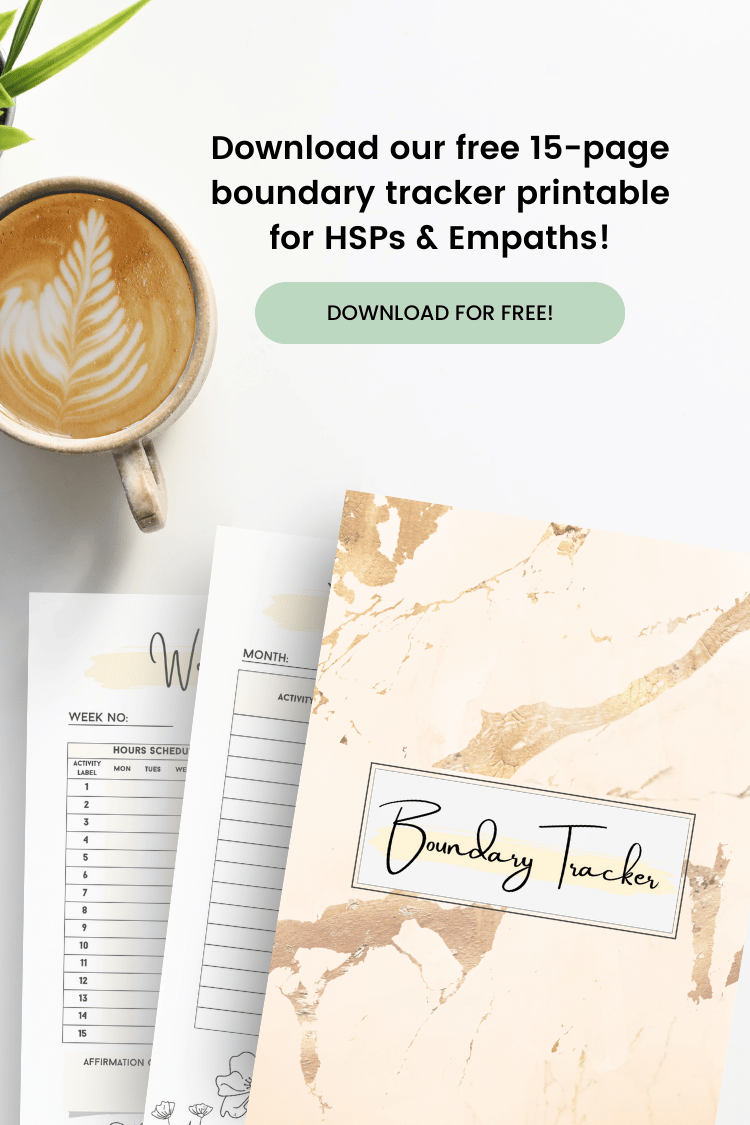Discover the differences between empaths and highly sensitive people (HSPs). Learn how to identify your traits and find tailored self-care strategies. Explore our guide on Empath vs. HSP and take our simple checklist test to understand yourself better.
Estimated reading time: 8 minutes
In the world of personal growth, understanding oneself is the first step toward a more fulfilled life. If you’ve ever felt deeply affected by the emotions of others or overwhelmed by sensory input, you might wonder whether you’re an empath or an hsp. While these traits overlap, they are distinct in several ways. Let’s dive into the differences between empaths and HSPs, and how knowing your type can guide your personal growth journey.
What Is an Empath?
Empaths are individuals who have an exceptional ability to sense and absorb the emotions and energies of those around them. This goes beyond simply understanding or feeling empathy for others; empaths actually feel others’ emotions as if they were their own. This trait can be both a blessing and a challenge. On the one hand, empaths can offer deep compassion and support to those in need. On the other hand, they can become overwhelmed by the intense emotions they absorb, leading to emotional burnout.
Empaths often find themselves drawn to helping professions such as counseling, nursing, or teaching, where their ability to connect deeply with others is highly valued. However, because they take on so much emotional energy from others, empaths need to be particularly mindful of setting boundaries and practicing self-care. Techniques such as grounding exercises, energy protection strategies, and regular alone time can help empaths maintain their own emotional balance.
What Is a Highly Sensitive Person (HSP)?
Highly sensitive people (HSPs) are individuals who have a heightened sensitivity to sensory stimuli, emotional cues, and subtleties in their environment. This trait is part of a spectrum of sensory processing sensitivity, and it is believed to be present in about 15-20% of the population. HSPs process information more deeply than others, which can make them more perceptive and insightful. However, this deep processing can also lead to feeling overwhelmed by bright lights, loud noises, strong smells, and even the energy of crowded places.
HSPs often excel in creative fields, where their attention to detail and ability to notice subtleties are great assets. They might find fulfillment in careers such as writing, art, music, or research. To manage their heightened sensitivity, HSPs benefit from creating calm and orderly environments, setting aside time for solitude, and engaging in practices that promote relaxation, such as mindfulness and meditation.
Empath vs HSP: what are the main differences?
While the empath and HSP share the common trait of heightened sensitivity, their experiences and challenges can differ significantly:
- Emotional Absorption vs. Sensory Sensitivity: Empaths are primarily affected by the emotions and energies of others. They absorb these emotions, which can lead to emotional exhaustion if not managed properly. HSPs, on the other hand, are more affected by sensory input and environmental factors. They might find certain textures, sounds, or lights particularly overwhelming.
- Energy Impact: Empaths can pick up on both positive and negative energies, which can drastically affect their mood and well-being. They need to regularly cleanse their energy to avoid feeling drained. HSPs, while also affected by energy, are more likely to be overwhelmed by sensory overload rather than emotional absorption.
- Coping Strategies: Empaths often need to develop specific coping strategies to manage the emotional energy they absorb, such as energy shielding or grounding techniques. HSPs benefit more from managing their sensory environment, ensuring they have quiet, calm spaces to retreat to when needed.

Empath vs. HSP Test
If you’re unsure whether you’re an empath or an HSP, taking a test can provide some clarity. The checklists below are created to help you understand your level of empathy and sensory sensitivity. While these tests can offer useful insights, remember that they are just a starting point. Self-reflection and personal experience are crucial in understanding your unique sensitivity. Consider keeping a journal to track your responses to different situations and stimuli. Over time, patterns may emerge that help you determine whether you’re more aligned with the traits of an empath or an HSP.
Do the empathy vs. HSP test by counting the amount of statements that apply to you below.
Empath Checklist
Wondering if you’re an empath? Have a look at how many characteristics you identify with:
| Statement |
| I often feel overwhelmed by the emotions of others. |
| I can sense when someone is upset, even if they don’t show it outwardly. |
| Being around negative people drains my energy quickly. |
| I feel deeply for others and their problems. |
| I often take on the suffering of others as if it were my own. |
| I find it hard to separate my emotions from those of people around me. |
| I need regular alone time to recharge and process my emotions. |
| I often feel the need to escape crowded or emotionally charged environments. |
| I prefer to spend time in nature to rejuvenate. |
| I have strong intuition and often know things without being told. |
| I can sense the energy in a room or situation quickly. |
| My gut feelings are usually accurate. |
| I naturally pick up on what others need or want. |
| I am often sought out for advice and support because of my understanding nature. |
| I feel compelled to help others, sometimes at my own expense. |
HSP checklist
Wondering if you’re a highly sensitive person? Use this checklist as a starting point:
| Statement |
| I am easily overwhelmed by bright lights, strong smells, or loud noises. |
| I notice subtle changes in my environment that others may miss. |
| I am sensitive to textures and fabrics and prefer soft, comfortable clothing. |
| I process information and experiences more deeply than most people. |
| I am often more aware of subtleties and details in my surroundings. |
| I need time to reflect on experiences to fully understand them. |
| I have strong emotional responses to both positive and negative events. |
| I can become easily overwhelmed by intense emotions, whether mine or others’. |
| I need time alone to process my emotions and recharge. |
| I feel easily overwhelmed by busy environments or hectic schedules. |
| I avoid violent or chaotic media because it upsets me deeply. |
| I often need to withdraw to a quiet place to recover from busy days. |
| I have a rich and complex inner life, with deep thoughts and vivid imaginations. |
| I am moved by arts, music, and literature more intensely than others. |
| I often daydream or reflect deeply on life’s meaning and my purpose. |
Scoring of These Lists
Count the number of statements you checked in each list:
- Empath Checklist: If you checked 8 or more statements, you are likely an empath.
- HSP Checklist: If you checked 8 or more statements, you are likely a highly sensitive person (HSP).
If you checked a high number of statements in both lists, you might be both an empath and an HSP, sharing traits from each category. Understanding these aspects of yourself can help you develop tailored strategies for self-care and personal growth. Embrace your sensitivity as a strength and use it to enhance your life and the lives of those around you.
Why Knowing the Difference between Empath and HSP Matters
Understanding whether you’re an empath or an HSP can significantly impact your approach to personal growth and self-care. Each trait comes with its own set of strengths and challenges, and knowing where you fall can help you tailor strategies to your specific needs.
For empaths, focusing on energy management is crucial. Techniques such as grounding exercises, energy protection methods, and regular self-care routines can help you maintain your emotional health. It’s also important to learn how to set healthy boundaries with others to prevent emotional overload.
For HSPs, creating a sensory-friendly environment is key. This might include using noise-canceling headphones, ensuring your living space is calm and orderly, and practicing relaxation techniques such as deep breathing or meditation. Prioritizing time alone to recharge and reflect is also beneficial.
Embracing Your Sensitivity
Whether you identify as an empath or an HSP, embracing your sensitivity is essential. These traits are not weaknesses; rather, they are unique aspects of your personality that can lead to profound empathy, creativity, and insight. By understanding and honoring your sensitivity, you can leverage it to enhance your personal growth and live a more fulfilling life.
In conclusion, while empaths and HSPs share some similarities, they are distinct in how they experience and process the world around them. By recognizing and embracing your unique sensitivity, you can develop effective strategies to manage overwhelm and thrive. Remember, your sensitivity is a gift that, when nurtured and understood, can lead to deep connections, rich creativity, and a truly meaningful life.








